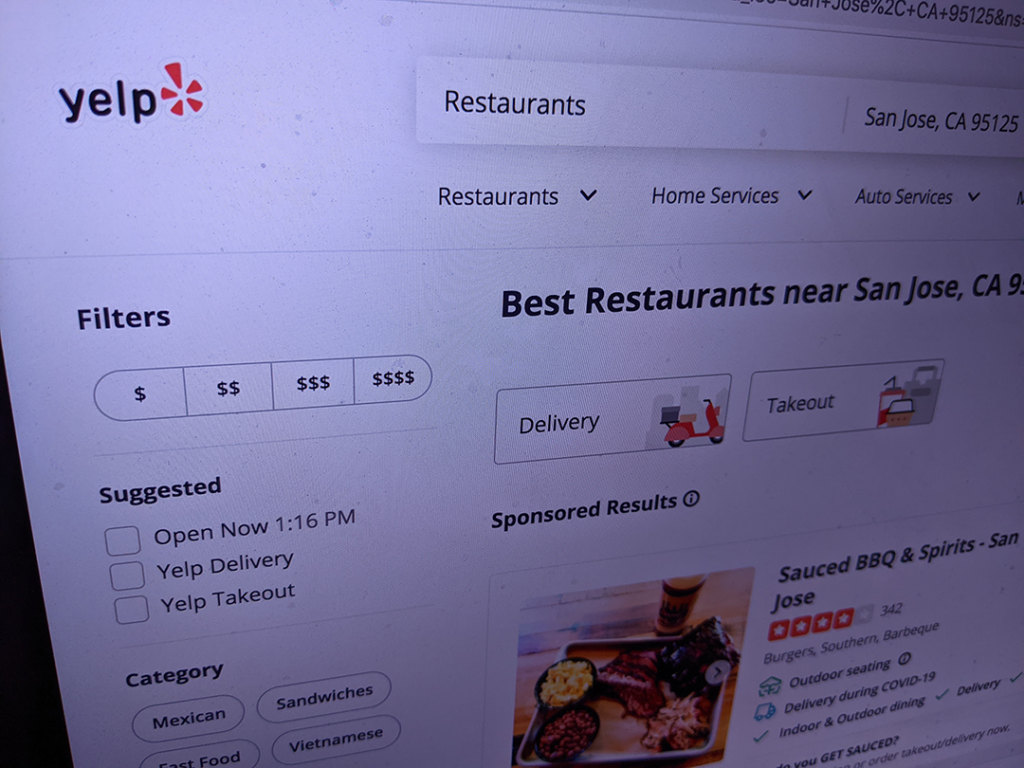[et_pb_section bb_built=”1″ inner_width=”auto” inner_max_width=”none”][et_pb_row][et_pb_column type=”4_4″][et_pb_text admin_label=”blog – text” _builder_version=”3.22.7″ saved_tabs=”all” custom_margin=”-50px|||” text_text_shadow_horizontal_length=”text_text_shadow_style,%91object Object%93″ text_text_shadow_vertical_length=”text_text_shadow_style,%91object Object%93″ text_text_shadow_blur_strength=”text_text_shadow_style,%91object Object%93″ link_text_shadow_horizontal_length=”link_text_shadow_style,%91object Object%93″ link_text_shadow_vertical_length=”link_text_shadow_style,%91object Object%93″ link_text_shadow_blur_strength=”link_text_shadow_style,%91object Object%93″ ul_text_shadow_horizontal_length=”ul_text_shadow_style,%91object Object%93″ ul_text_shadow_vertical_length=”ul_text_shadow_style,%91object Object%93″ ul_text_shadow_blur_strength=”ul_text_shadow_style,%91object Object%93″ ol_text_shadow_horizontal_length=”ol_text_shadow_style,%91object Object%93″ ol_text_shadow_vertical_length=”ol_text_shadow_style,%91object Object%93″ ol_text_shadow_blur_strength=”ol_text_shadow_style,%91object Object%93″ quote_text_shadow_horizontal_length=”quote_text_shadow_style,%91object Object%93″ quote_text_shadow_vertical_length=”quote_text_shadow_style,%91object Object%93″ quote_text_shadow_blur_strength=”quote_text_shadow_style,%91object Object%93″ header_text_shadow_horizontal_length=”header_text_shadow_style,%91object Object%93″ header_text_shadow_vertical_length=”header_text_shadow_style,%91object Object%93″ header_text_shadow_blur_strength=”header_text_shadow_style,%91object Object%93″ header_2_text_shadow_horizontal_length=”header_2_text_shadow_style,%91object Object%93″ header_2_text_shadow_vertical_length=”header_2_text_shadow_style,%91object Object%93″ header_2_text_shadow_blur_strength=”header_2_text_shadow_style,%91object Object%93″ header_3_text_shadow_horizontal_length=”header_3_text_shadow_style,%91object Object%93″ header_3_text_shadow_vertical_length=”header_3_text_shadow_style,%91object Object%93″ header_3_text_shadow_blur_strength=”header_3_text_shadow_style,%91object Object%93″ header_4_text_shadow_horizontal_length=”header_4_text_shadow_style,%91object Object%93″ header_4_text_shadow_vertical_length=”header_4_text_shadow_style,%91object Object%93″ header_4_text_shadow_blur_strength=”header_4_text_shadow_style,%91object Object%93″ header_5_text_shadow_horizontal_length=”header_5_text_shadow_style,%91object Object%93″ header_5_text_shadow_vertical_length=”header_5_text_shadow_style,%91object Object%93″ header_5_text_shadow_blur_strength=”header_5_text_shadow_style,%91object Object%93″ header_6_text_shadow_horizontal_length=”header_6_text_shadow_style,%91object Object%93″ header_6_text_shadow_vertical_length=”header_6_text_shadow_style,%91object Object%93″ header_6_text_shadow_blur_strength=”header_6_text_shadow_style,%91object Object%93″ z_index_tablet=”500″]
Yelp has more than 178 million unique visitors monthly across mobile and desktop. (Photo: EyeSpy CC)
Not only do you have to manage a business, but in this day and age you also have to manage your social media. For restaurant owners, it can be exhausting to keep up. Unfortunately, in the age of social media, you can’t afford not to.
Since it was founded in 2014, Yelp’s users have authored over 192 million reviews. And new business reviews are being posted every day – some even before those businesses open.
The simple truth is frightening, online reviews and ratings can make or break a restaurant:
- Restaurants make up 19% of Yelp’s reviewed businesses.
- 94% of diners use online reviews to make a dining decision.
- As of April 2019, Yelp has 37 million unique users.
- 22% of users said they wouldn’t buy a product or service from a business after reading a negative review.
Yelp is a powerful tool. It’s a great way to connect with your customers and give your brand a unique voice online. It can also be used to gather customer feedback and make operational improvements.
But what about when customers weaponize it against you? With the freedom to rate and review at will, some consumers have deemed themselves – the judge, jury and executioner. How do you deal with those people?
The Customer is Not Always Right
Many restauranters have already had to deal with difficult customers that went after their businesses on Yelp. These are the customers that no matter what, just couldn’t be pleased, or bullied a restaurant in an attempt to get them to fulfill their unreasonable requests.
In today’s social media-driven world, likes, stars, and rankings matter. For restauranteurs, this means on Yelp or other social platforms you need to maintain an 80% approval rating (equivalent to four stars on Yelp), even if that means eating crow – because according to a UC Berkeley economists study found on a scale of 1 to 5, a half-star rating increase on Yelp translates into a 19 percent greater likelihood that a restaurant’s seats will be full during peak dining times.
According to a Harvard Business School study, a one-star decrease in a restaurant’s overall Yelp rating could lead to a 5 percent loss in revenue.
The message is very clear: If you don’t engage with Yelp (and more specifically, your users) or other social media platforms, the results can be disastrous and significantly affect your business. And in extreme cases, restaurants should absolutely stand up to bullies and respond.
Responding to Yelpers
Of course, every situation is different, but you should never be afraid to stand up for the truth and accurate representation, and presentation of, the facts. We don’t necessarily recommend firing back at customers like the previously mentioned owners unless you really feel it’s absolutely necessary.
Escalating any situation (especially with a customer) can get dicey and lead to even more negative attention.
10 Tips to Help Restaurants Respond to Yelpers
- Claim your business. An unclaimed Yelp page sends the message that you don’t care what your customers think.
- Read your reviews and respond to them in a timely manner. Review your social channels a few times a week to make sure someone hasn’t left you a nastygram.
- Don’t ignore negative reviews. Allowing a negative review to remain unresponded to sends the message that the customer was right and you don’t care.
- Use negative reviews as an opportunity for guest recovery. Respond! Show the customer you’re having the problem with (and the audience) you care, you want to make it right and this is not how you normally run your business.
- Respond publicly. Keep the dialogue open and public. This helps keeps all parties honest and more civil.
- Acknowledge the issue and apologize. Own it and move on.
- Make clear the issue has been resolved. Be sure to communicate how you fixed the problem and what you are doing to make sure it doesn’t happen again.
- Don’t take negative reviews personally. At the end of the day, you’ve got a business to run and trolls are gonna troll.
- Be authentic and personable. Be yourself and put your best foot forward – no matter the issue – and always thank guests for their time and feedback.
- Flag It. Still don’t think that review was fair? Or did the guy use racist terms and call you other names you’d only hear in a Tarrantino movie? Yelp allows you to flag reviews – if a review does not meet Yelp’s personal consumer experience standard you can request it to be removed by contacting Yelp’s support team.
Need help responding to reviews or developing an engagement strategy for any social media platform? EyeSpy’s team of social media experts will help you craft general templates and then customize responses to each guest and their specific review. Following guidelines you set up, your personal social media and reputation management manager responds promptly to reviews, to foster the relationship with brand ambassadors and help repair relationships with brand detractors.
[/et_pb_text][et_pb_text admin_label=”share this – text” _builder_version=”3.11″ saved_tabs=”all”]
Share this
[/et_pb_text][et_pb_social_media_follow admin_label=”social media follow – icons” _builder_version=”3.11″ border_radii=”on|100%|100%|100%|100%” text_orientation=”center” background_layout=”dark” module_alignment=”right” custom_margin=”|||” animation_style=”slide” animation_direction=”top”][et_pb_social_media_follow_network social_network=”facebook” _builder_version=”3.11″ background_color=”rgba(0,0,0,0.1)” custom_margin=”|10px||10px||true” custom_padding=”10px|10px|10px|10px|true|true” follow_button=”off” url_new_window=”on” skype_action=”call” url=”https://www.facebook.com/Eyespy/” use_background_color_gradient=”off” background_color_gradient_start=”#2b87da” background_color_gradient_end=”#29c4a9″ background_color_gradient_type=”linear” background_color_gradient_direction=”180deg” background_color_gradient_direction_radial=”center” background_color_gradient_start_position=”0%” background_color_gradient_end_position=”100%” background_color_gradient_overlays_image=”off” parallax=”off” parallax_method=”on” background_size=”cover” background_position=”center” background_repeat=”no-repeat” background_blend=”normal” allow_player_pause=”off” background_video_pause_outside_viewport=”on” custom_margin_tablet=”|10px||10px||true” custom_margin_phone=”|10px||10px||true” custom_padding_tablet=”10px|10px|10px|10px|true|true” custom_padding_phone=”10px|10px|10px|10px|true|true” border_radii=”on|3px|3px|3px|3px” box_shadow_style=”none”]
[/et_pb_social_media_follow_network][et_pb_social_media_follow_network social_network=”twitter” _builder_version=”3.11″ background_color=”rgba(0,0,0,0.1)” custom_margin=”|10px||10px||true” custom_padding=”10px|10px|10px|10px|true|true” follow_button=”off” url_new_window=”on” skype_action=”call” url=”https://twitter.com/eyespy_cc/” use_background_color_gradient=”off” background_color_gradient_start=”#2b87da” background_color_gradient_end=”#29c4a9″ background_color_gradient_type=”linear” background_color_gradient_direction=”180deg” background_color_gradient_direction_radial=”center” background_color_gradient_start_position=”0%” background_color_gradient_end_position=”100%” background_color_gradient_overlays_image=”off” parallax=”off” parallax_method=”on” background_size=”cover” background_position=”center” background_repeat=”no-repeat” background_blend=”normal” allow_player_pause=”off” background_video_pause_outside_viewport=”on” custom_margin_tablet=”|10px||10px||true” custom_margin_phone=”|10px||10px||true” custom_padding_tablet=”10px|10px|10px|10px|true|true” custom_padding_phone=”10px|10px|10px|10px|true|true” border_radii=”on|3px|3px|3px|3px” box_shadow_style=”none”]
[/et_pb_social_media_follow_network][et_pb_social_media_follow_network social_network=”instagram” _builder_version=”3.11″ background_color=”rgba(0,0,0,0.1)” custom_margin=”|10px||10px||true” custom_padding=”10px|10px|10px|10px|true|true” follow_button=”off” url_new_window=”on” skype_action=”call” url=”https://www.instagram.com/eyespy_cc/” use_background_color_gradient=”off” background_color_gradient_start=”#2b87da” background_color_gradient_end=”#29c4a9″ background_color_gradient_type=”linear” background_color_gradient_direction=”180deg” background_color_gradient_direction_radial=”center” background_color_gradient_start_position=”0%” background_color_gradient_end_position=”100%” background_color_gradient_overlays_image=”off” parallax=”off” parallax_method=”on” background_size=”cover” background_position=”center” background_repeat=”no-repeat” background_blend=”normal” allow_player_pause=”off” background_video_pause_outside_viewport=”on” custom_margin_tablet=”|10px||10px||true” custom_margin_phone=”|10px||10px||true” custom_padding_tablet=”10px|10px|10px|10px|true|true” custom_padding_phone=”10px|10px|10px|10px|true|true” border_radii=”on|3px|3px|3px|3px” box_shadow_style=”none”]
[/et_pb_social_media_follow_network][/et_pb_social_media_follow][/et_pb_column][/et_pb_row][/et_pb_section]







